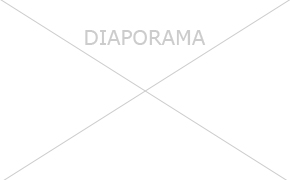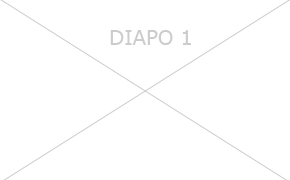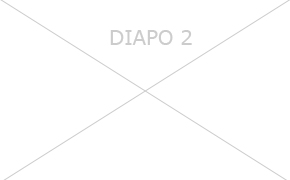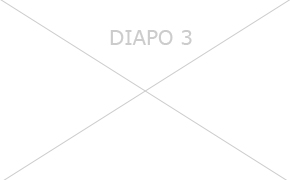General information
Organisation
The French Alternative Energies and Atomic Energy Commission (CEA) is a key player in research, development and innovation in four main areas :
• defence and security,
• nuclear energy (fission and fusion),
• technological research for industry,
• fundamental research in the physical sciences and life sciences.
Drawing on its widely acknowledged expertise, and thanks to its 16000 technicians, engineers, researchers and staff, the CEA actively participates in collaborative projects with a large number of academic and industrial partners.
The CEA is established in ten centers spread throughout France
Reference
2024-34334
Description de l'unité
Notre Service dédié au Génie Logiciel pour la Simulation (SGLS) réalise et maintient des plateformes génériques, pérennes et open source dans le but :
- de développer des codes de calcul parallèles en mécanique des fluides à différentes échelles (https://sourceforge.net/projects/trust-platform/)
- d'exploiter les codes de calculs à l'aide d'outils de mise en données, prétraitements et postraitements, standards ou spécifiques;
-de fournir aux physiciens les méthodes et outils leur permettant d'optimiser leurs conceptions et de traiter les incertitudes de leurs études de sureté.
Le Laboratoire d'Intelligence Artificielle et de science des Données (autrement nommé le LIAD) réalise et maintient une plateforme générique, pérenne et open source pour fournir à nos physiciens des méthodes et outils leur permettant d'améliorer leurs modèles, d'optimiser leurs conceptions et de traiter les incertitudes de leurs études : la plateforme Uranie.
Uranie ? Oui, notre plateforme permet dans l'approche VVQI (Validation, Vérification et Quantification d'Incertitude) de créer des plans d'expériences adaptés aux besoins d'une analyse de sensibilité, d'un problème d'optimisation ou de la génération d'une base d'apprentissage ou de test pour un modèle de substitution.
Uranie permet de piloter le lancement des codes ou fonctions de manière séquentielle ou avec différentes approches de parallélisation.
Position description
Category
Mathematics, information, scientific, software
Contract
Internship
Job title
INTERNSHIP - Machine Learning for Material Science - 6 months - Saclay H/F
Subject
Optimization Schemes and Machine Learning for Structural Design Applications in Additive Manufacturing
Contract duration (months)
6
Job description
At the Institute of Applied Sciences and Simulation for Low-Carbon Energies (ISAS) of the CEA, we focus on research and innovation in analytical sciences: we aim to improve our understanding of the evolution of complex systems and their components in material science. As data analysis plays a pivotal role, we are interested in methodological advancements in statistics, mathematics and computer science, for instance, via the development of state-of-the-art AI models, adapted to our needs.
Metallic gaskets are designed to ensure optimal sealing for components exposed to high pressure and temperature, such as the covers of pressurized water reactors. These gaskets consist of three integral parts, including a rigid spring that forms their core structure. Achieving ideal elastic deformation in gaskets can be challenging due to plastic deformation during compression, which impacts their performance. Improving springback properties while minimizing plastic deformation requires exploring innovative approaches, supported by studies to optimize mechanical responses, and leveraging advanced manufacturing techniques for prototyping. Preceded by a simulation study that provides the geometric optimum parameters of the structure for a tailored mechanical response, complex structures are prototyped with additive manufacturing. In order to validate the approach, comparison between simulation and experiments is realized.
The problem can be framed as optimization: we wish to find a distribution of physical and geometrical parameters capable of improving our ability to design good experiments efficiently. Different machine learning techniques can be, then, deployed to classify and characterize physical structures for their design optimization. The intern will deal with tasks such as:
- contribute to data exploration and engineering for the creation of high-quality reference databases,
- perform a sensitivity analysis of the input parameters to determine the impact on the final results (e.g. via Sobol indices and Shapley values),
- model the distributions of the parameters (posterior), based on the material response, to improve the experiment design (e.g. through Monte Carlo simulations),
- identify and propagate uncertainties and errors in the models, in order to account for experimental reproducibility and trustworthiness of the measurements,
- perform an automatic classification of different material structures using machine learning methods for tabular (e.g. XGBoost) and non structured data (e.g. neural networks) from the simulations and the experiments.
The internship will be a collaboration between the Laboratory of Artificial Intelligence and Data Science (LIAD) and the Laboratory of Engineering of Surfaces and Lasers (LISL). The intern will have the possibility to work with scientists with different backgrounds, such as engineering, physics, and AI. They will also have the possibility to get familiar with tools developed by different laboratories.
Methods / Means
additive manufacturing, Bayesian optimization, data engineering, AI, machine learning
Applicant Profile
We look for a passionate student at the end of their studies (e.g. the French M2 level), with a good understanding of statistical methods and data analysis for analytical science. Good knowledge of a scientific programming language is mandatory (e.g. Python, R, C++). Previous experience in machine learning methods is appreciated, but unnecessary. A basic understanding of physics (material science) will be considered a plus.
Position location
Site
Saclay
Job location
France, Ile-de-France, Essonne (91)
Location
Saclay
Candidate criteria
Languages
- French (Fluent)
- English (Intermediate)
Requester
Position start date
01/01/2025

 Je me crée un espace candidat
Je me crée un espace candidat






